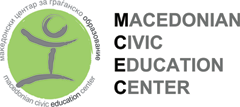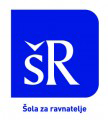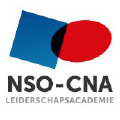Partnership
List of partners and description
Network of Education Policy Centers (NEPC) is an international non-governmental membership organization that gathers 24 institutional members from 19 countries. NEPC was founded in 2006 and formally established in 2008. NEPC has 3 employees (Executive director, financial manager and administrative officer), external program advisory and over 20 external international experts. NEPC members are public and civil-society organizations dealing with education at different levels from educational research and policy analysis to teacher training and school-based activities. The network’s contribution to improving education policies in this region is reflected in its highly diverse project portfolio, which includes large projects involving multiple countries.
The mission of NEPC is promoting flexible, participatory, evidence-based, transparent education policies reflecting open society values, which means proactive policy initiatives as well as advocacy and monitoring activities of governments and national education systems. The programmatic areas of NEPC implemented through 3 strategic plans endorse the vision of an open, democratic, multicultural, and pluralistic society in which the education system plays a fundamental role.
NEPC operates through three types of action: advocacy, learning, research. The three actions are interconnected and aim:
- to explore education policy, issues and practices (research and mapping studies);
- to propose solutions and present evidence-based recommendations (advocacy) and
- to share knowledge among members and education stakeholders to achieve sustainable and efficient change in education (Learning events).
The Forum for Freedom in Education is a well-recognized civil society organisation active since 1992. It works on harmonising the educational system in Croatia with the educational standards of modern democratic societies, guided by the principles of choice and equal access to education that enables the self-realisation of a person. The goals of the programmes of the Forum for Freedom in Education are achieved through professional training seminars and educational activities, studies and analyses, campaigns and creative competitions, as well as through direct work with teachers and schools. Publishing plays an important role in disseminating best practices by way of compendia and other publications available on the organisation’s web site. Particular attention is paid to the development of high-quality programmes for children and youth so that they can gain knowledge and skills for their participation in societal and democratic processes. Over 10,000 primary and secondary teachers have participated in our training events and workshops, and we are particularly proud of the average evaluation mark of our seminars: 4.8 (on a 1-5 scale). The National Foundation for Civil Society Development recognised the Forum for Freedom in Education’s work and awarded us their institutional support on three occasions. Representatives of the Forum for Freedom in Education have participated in the work of a number of professional committees and working bodies in the field of education on the national level. We have been, by decision of the Ministry of Justice of the Republic of Croatia, an accredited conciliation organisation since 2013.
The Open Academy Step by Step (SbS-HR) is a non-governmental, not-for-profit organization established in 2000, with a mission of ensuring access to quality education for all children. The Open Academy Step by Step achieves its mission by providing support to kindergartens and schools through in-service training of educational staff, mentoring support to teachers and school teams, and through publishing activities (books, magazines and picture books). SbS-HR has rich experience in conducting surveys with practitioners through focus groups, questionnaires and evaluations, as well as in analyzing data (for example, The study Analysis on Equity Issues Regarding Access to Quality Preschool Education: Comparative Situation Analysis in Targeted Communities, conducted in cooperation with the UNICEF Office for Croatia). The in-service training programs are focused on child-centered approaches to education and care, on early childhood education and care and school improvement programs, and on education for social justice. Topics of training programs include wellbeing and active participation of children in the process of education and care, in which children are able to express themselves freely and creatively, develop critical thinking skills, independence, responsibility and care for others and for the environment. Training programs aim to realize children's potential according to their interests and abilities, in an atmosphere that supports democratic relations and respect for diversity. Topics of training programs also include creating supportive ECEC settings and school environments for inclusive education (e.g. for children with disabilities, for minority children with the focus on Romani children, for children whose first language is not the official language of instruction).
The mentoring support to ECEC settings and schools is realized through peer-to-peer support by trained mentors to individual teachers, but mostly through developing and supporting professional learning communities within ECEC and school settings.
The Open Academy Step by Step encourages and facilitates partnerships of educational institutions with families, social and health services, local government, and the broader community. In partnership with kindergartens and schools, and with many national and international organizations, agencies and donors (UNICEF, UNDP, International Step by Step Association, Open Society Foundations, EU Social Fund, etc.), the Open Academy Step by Step implements various projects with a special focus on improving the access to quality education and care for children from disadvantaged backgrounds.
The Open Academy Step by Step is a full Member of the International Step by Step Association (ISSA), Network of Education Policy Centers (NEPC), and Coordination of Organizations Working for Children (Croatia)
Foundation for Education and Cultural Initiatives Step by Step
url: www.stepbystep.org.mk
North Macedonia

The Step-by-Step Foundation prepares, develops and implements programs that promote education and culture in the contemporary society as a key factor for educational, cultural, economic and social development. In the last 25 years, the Step by Step Foundation has promoted and conducted a number of professional development training for teachers at all levels of education for interactive teaching techniques and methods that encourage critical thinking among students, promote social justice, lifelong learning and creating learning communities among teachers. Our work is based on innovative approaches and strategies focused on professional development of staff in schools in our country and contemporary approaches in teaching practice. The Foundation also encourages local communities to meet the needs of every child, including children with special needs, the children from minority groups, Roma children, children that lack the opportunity to be educated, children who live in the rural areas and other vulnerable groups. We are encouraging democratic processes in education of children, youth and adults and supporting children’s rights. The foundation implements all projects in partnership with the ministries, educational and cultural institutions, domestic and foreign CSO’s and other relevant stakeholders and has significant experience in guiding and implementing activities which promote innovation, progress and development in the areas of education, human and children rights, and inclusive civil society.
Since its establishment in 2004, MCEC-MK has implemented variety of projects related to professional development of the educational staff in different areas such as developing and implementing standards for quality professional development; supporting schools for implementing in-schools professional development; supporting local and state educational authorities in development of strategies and procedures for supporting, monitoring and evaluation in school development; development and implementation of teachers certification procedures as tool to evaluate implementation of new gained knowledge. MCEC-MK had also worked on development of school-based assessment standards and teachers competences that were officially accepted by Ministry of Education and Science. Using own staff expertise in broad range of educational areas MCEC-MK was invited to give input in developing Indicators for integral school evaluation; propose improvement of the draft Laws for primary and secondary education – specially the articles related to teaches’ professional and career development; facilitating meetings and round tables to discuss present status and share ideas for teachers’ professional and career development system.
MCEC-MK has implemented various interethnic an inclusive education activities and projects directed towards supporting integrated education in multi-ethnic communities. We have pioneered innovative approaches to strengthening the intercultural competences of school managers, teachers, parents and students. MCEC-MK assisted primary and secondary schools in planning and implementing extra curricula activities that supported work of school support teams to sustain investments and created local ownership in establishing model activities for cooperation at the school level. Thousands of teachers and school staff received capacity building training to enable interethnic integration in schools and implement interethnic joint student activities. We have also strengthened civic education programs in schools through facilitating its formal integration into the national lower-elementary curriculum.
The Educational Research Institute (ERI) was established in 1965 and is the central institution in Slovenia for research in education undertaking basic research, development and applied projects on issues of current interest in all sectors of education and related areas. ERI performs its activities in the context of the national research program (1999-2019) as a public service. Its’ researchers publish scientific works containing results arising out of formal research undertaken at the ERI, theoretical and empirical papers contributing to the development of educational theory, and discussion articles on research topics. Its work is carried out by 30 experts coming from different educational fields and covering different research areas and methodological approaches of educational research (pedagogy, andragogy, sociology, psychology, philosophy, anthropology, rhetoric and argumentation, political science). The last allows the ERI to successfully carry out multidisciplinary approach and ensure to tackle the research problems and topics from different perspectives and enable to provide the overall approach to lifelong learning. ERI has high reputation within Slovenian educational space and has been recognized as coordinator of many concluded and on-going research projects in the field of education and wider. In well-established partnership with other research and professional institutions in the field of education in Slovenia ERI organises seminars, professional meetings and international conferences, where it actively disseminates results of the research work to different target publics (policy makers, practitioners, media, non-governmental organisations). ERI regularly reports about its research and other activities to the Ministry of Education, Science and Sport.
The ERI has extensive experience in the field of international cooperation. One of the most important activities of the ERI is additional linking with other international institutions, meeting the status, staff and infrastructural conditions for inclusion in permanent networks of international educational research (OECD, IEA studies, European Commission, Council of Europe, etc.). It is a founding member of the European Educational Research Association (EERA). Since 2015 the ERI is also an active member of the international Network of Education Policy Centres (NEPC).
The NSLE-SI (National School of Leadership in Education) was established in 1995 by the Government of the Republic of Slovenia for training and professional development of school principals. The main aim of NSLE-SI’s since is to develop and support school leadership.
Its activities include different forms of school leadership professional development focusing on principals as well as middle leaders and in some cases teachers as leaders. NSLE-SI therefore runs following activities:
- School principals’ life-long learning with programmes that follow, develop and support school principals in different stages of their professional path, e.g. a) headship license programme, b) mentoring newly appointed HTs and c) headship development and leadership for learning
- Programmes that develop and support school leadership e.g.: training for middle leadership, networks of learning schools, seminars for school self evaluation, thematic seminars for school principals, supporting school principals in managing legal issues etc.
- Other activities: besides the above mentioned, NSLE-SI runs several annual conferences for school principals, school principal assistants and other professionals working in schools, it publishes journal Leadership in Education, books, proceedings etc.
- International dimension of NSLE-SI: NSLE-SI is a member of several international associations, coordinated or has been a partner in many international projects (PHARE, OECD, ERASMUS etc.) aimed at school leadership development in different EU countries, it organized several international conferences and congresses (ATEE, ICSEI, ENIRDELM)
- Current priorities: In the framework of ESF funding NSLE-SI currently (2016-2019) runs national programmes/projects co-financed by MoE that are focused on three areas, eg: a) managing and leading innovative learning environments, b) developing national model of quality in education and c) building competencies of school staff
NSO-CNA-NL is a Netherlands Based school-leadership institute (research and professionalization) associated with five Netherlands universities. Apart from our numerous professional development programmes at home are we since 1989 experienced in international programmes and projects on school leadership and educational management. NSO-CNA-NL performed expert and managerial roles in Educational management and School leadership projects in over 15 countries world-wide. For Netherlands students two NVAO-accredited professional master programmes are offered.








